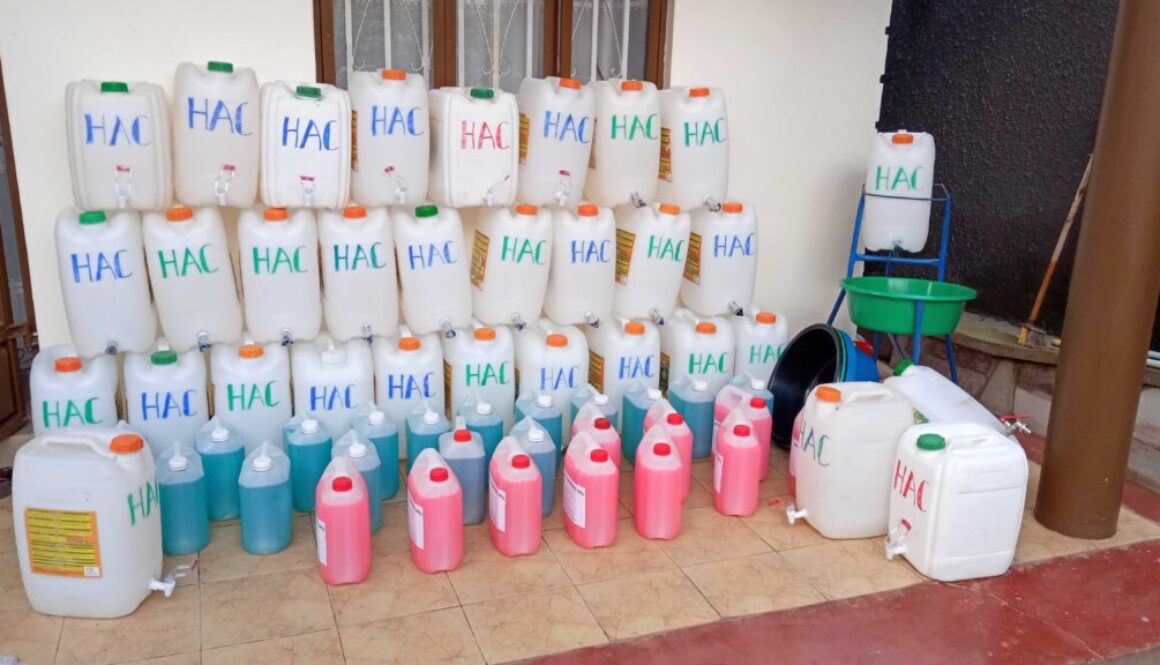
Kevin Gibbons
Posts by Kevin Gibbons:

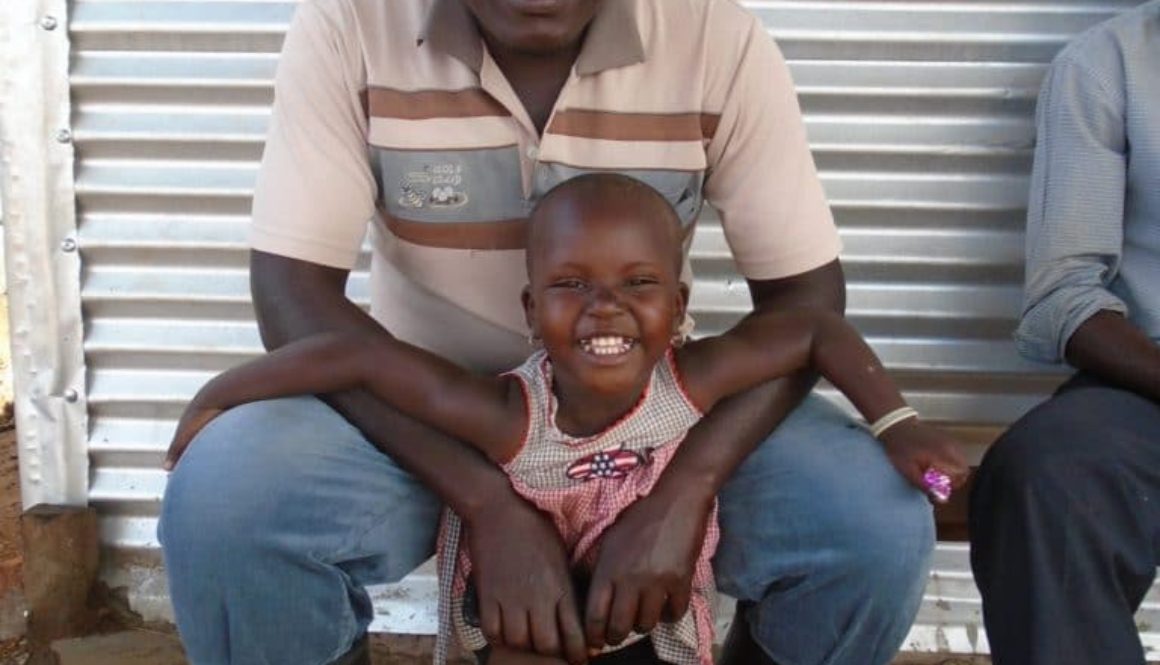
Five Years & Vision 2020
Five years!! We completed the registration for Health Access Connect on November 28, 2014. I am thankful for the most rewarding five years of my life.
Today on Thanksgiving I am grateful for the privilege to be able to do the work that I do. To be able to spend every hour of my work life toward connecting poor people in remote villages to healthcare, and to do it in a sustainable way.
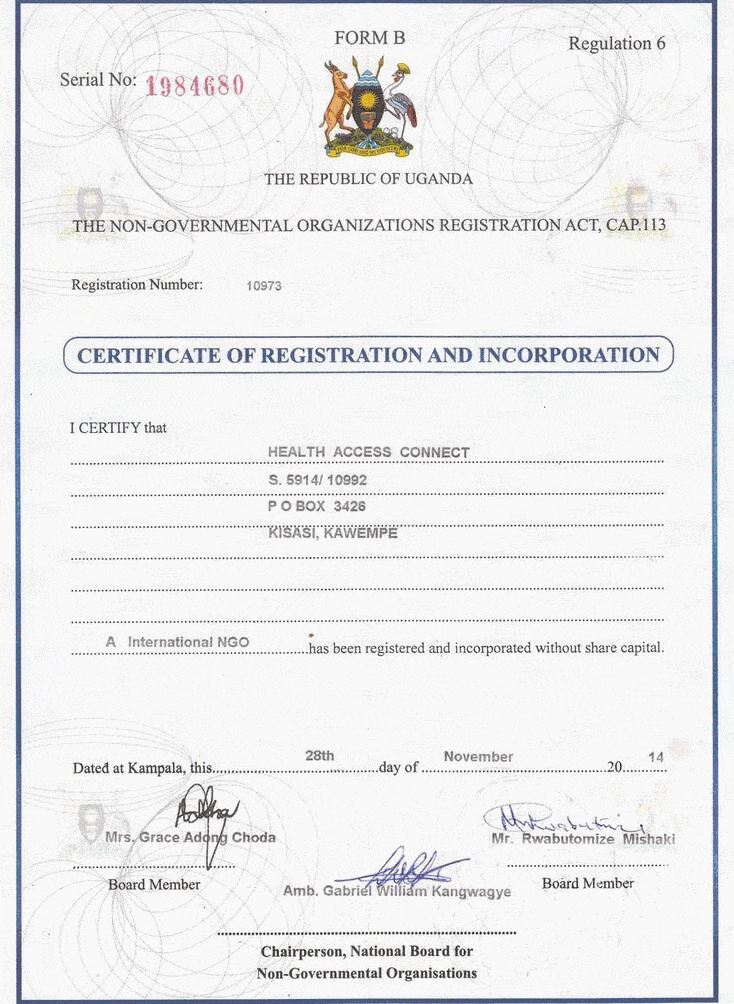
How I got interested in this issue
I first got interested in healthcare in remote villages during research that I conducted in Lake Victoria fishing villages. I was asking about fisheries management, livelihoods, migrations … lots of academic things. Yet almost all of the people whom I was interviewing were talking about access to basic social services: The health facilities are too far away, and people’s health suffers because of it. As an outsider to public health work at the time, the big puzzle to me was “Why are there people who are dying of HIV when free lifesaving healthcare is just 3 miles away?!”
Carolyne Ariokot and I started HAC because we are haunted by the inequality in the world. Why shouldn’t everyone have access to what they need to care for themselves and their loved ones? Health Access Connect is our response to that challenge. We can’t fix everything, but we can try to get healthcare closer to people.
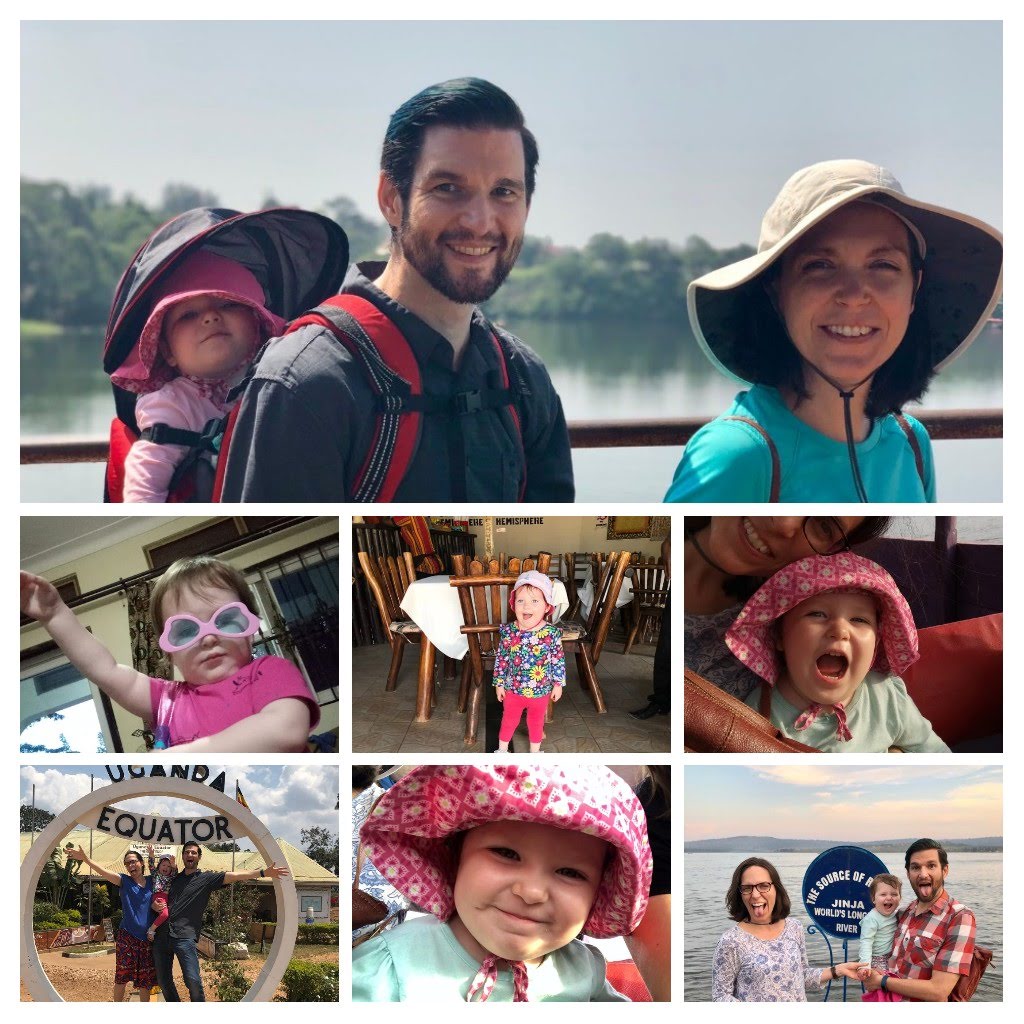
Healthcare is personal
I look at my wife Nancy and my daughter Amiya. We have benefited from access to healthcare in so many ways:
- If we needed stitches or a broken bone set right, we were rushed to the hospital, and things turned out fine.
- As a child, I suffered from dangerous fevers that threatened my life, but my parents were able to access health workers who could diagnose and treat my condition.
- During my travels I have suffered from dengue fever, malaria, and pneumonia, all of which could have cost me my life if I had not been able to access a health worker and medicine.
- Amiya’s heart rate dropped dangerously low during the delivery, and she had to receive special monitoring and care. Had we not had access to healthcare, we may have lost her.
- Nancy suffered from postpartum hemorrhage after Amiya’s birth, which could have threatened her life if not treated. (Not matter where you live, upwards of 15% of pregnancies experience some kind of complication.)
Access to healthcare is personal to me and to everyone else.
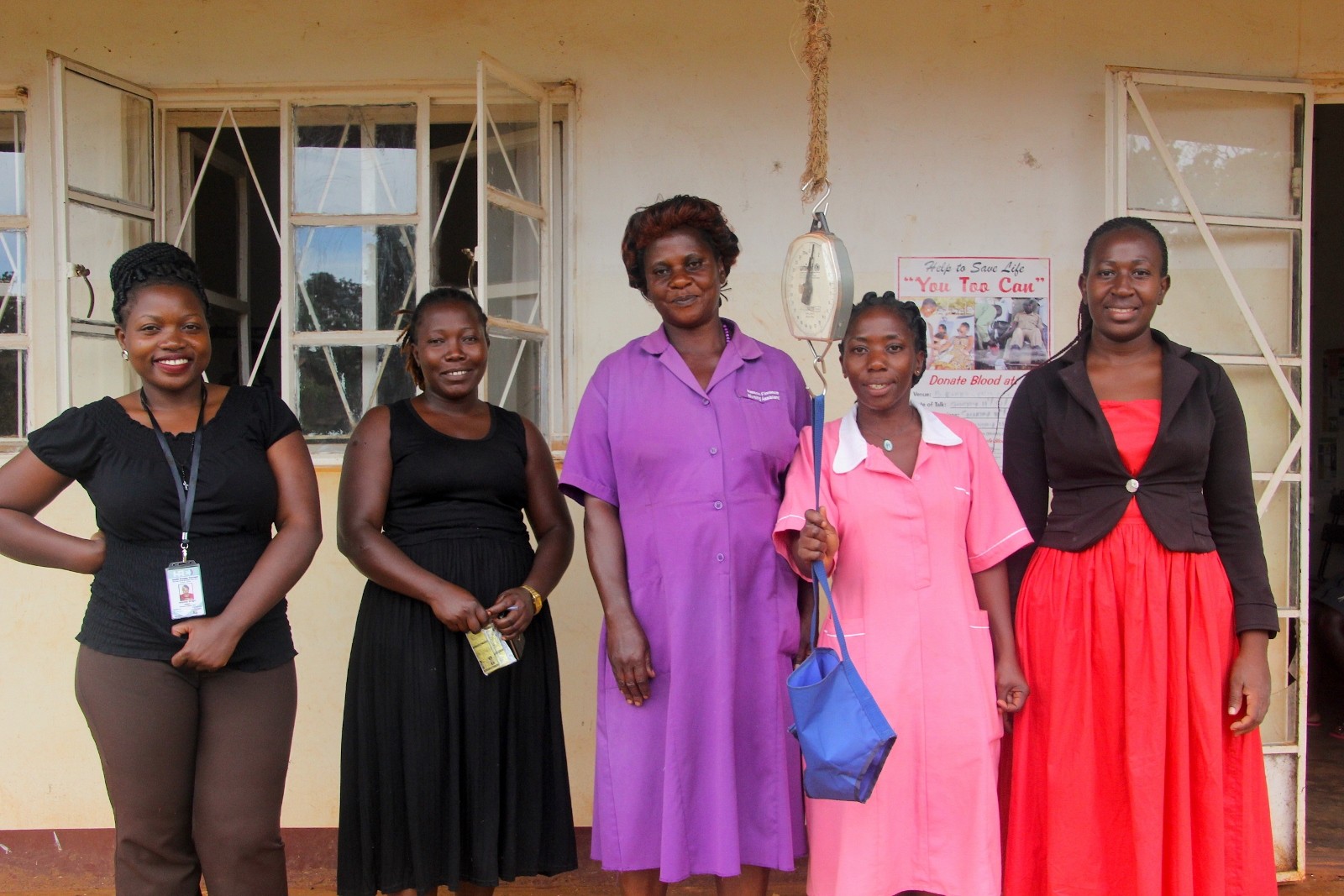
Where are we going with this?
As I write this now, HAC has helped Ugandan health workers to serve over 20,000 patients in remote areas. We are currently helping serve over 42 villages and 1,350 patients per month with lifesaving healthcare. Note that these are areas that other organizations have been able to reach with consistent care, and our team at HAC has been able to set up a sustainable system to reach them every 1-2 months. I say with great humility that HAC’s work is changing healthcare in Uganda and has the potential to make the world a more equitable place.
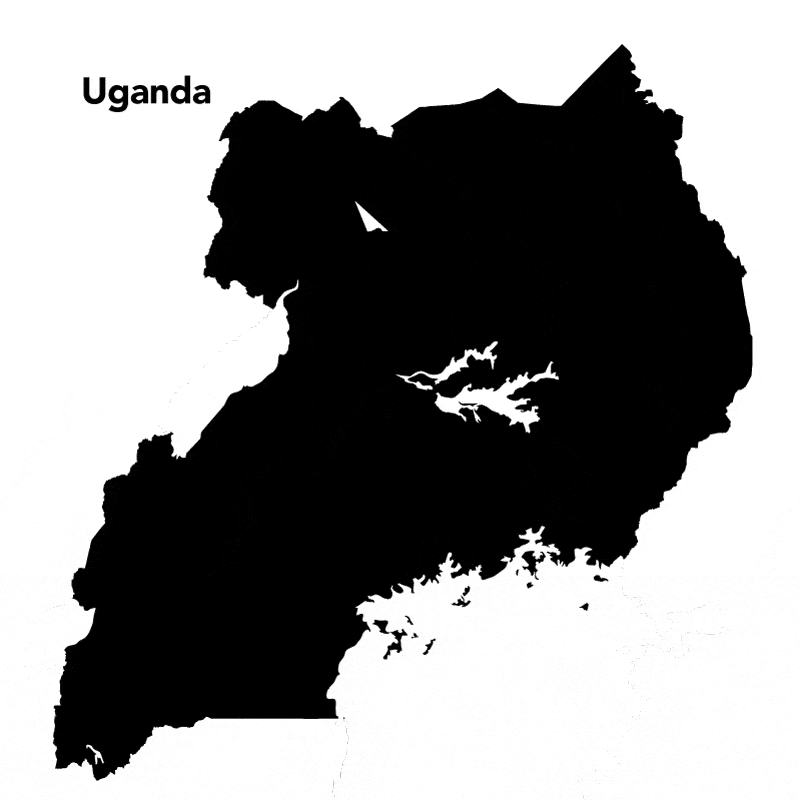
Once you take out the places that are within 5km (3.1 miles) to the nearest health facility, there are large swaths of the country that are underserved. That’s where HAC needs to be!
To get closer to that goal, we want to reach over 100 villages with monthly or bimonthly healthcare by the end of 2020.
Thank you, from the bottom of my heart, to everyone who has been with us on the ride for these five years:
- The communities we serve
- The health workers who treat patients
- The government officials who make things happen
- The HAC staff who bring things together
- The donors who give us the resources we need to do our work
- My wife (Nancy) and parents (Kirk and Katie) whose contributions I can’t even begin to list
- All the people who believe in what we do and have made this all possible
I am thankful for you all.
Gratefully,
Kevin
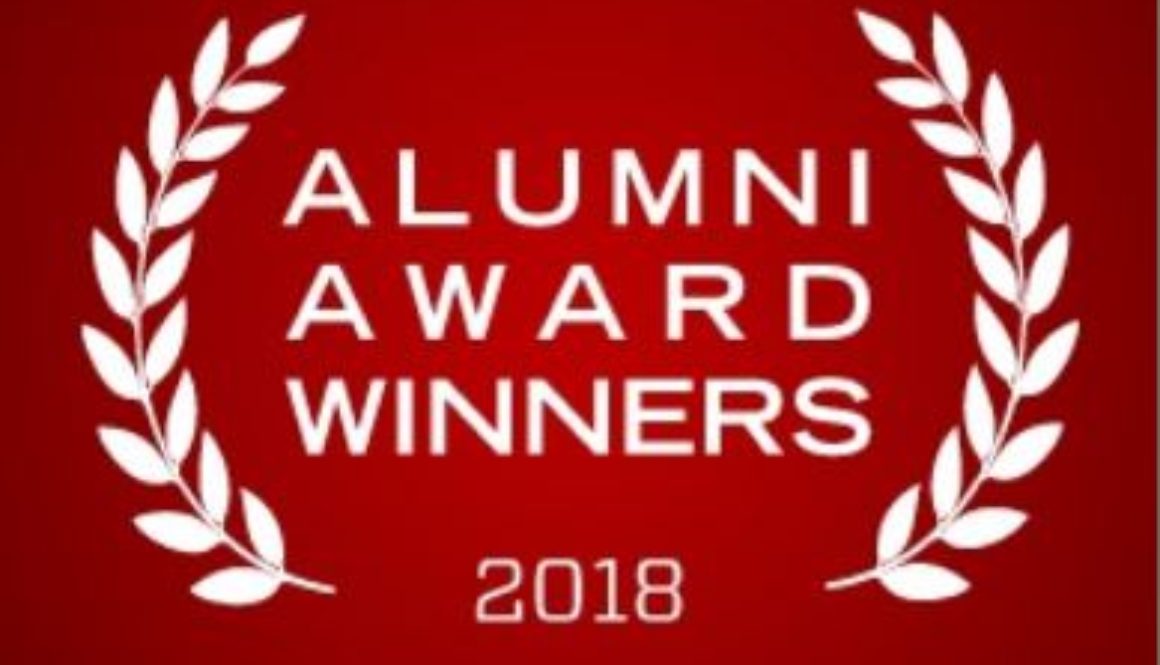
Executive Director given Rising Star Alumni Award
Our Executive Director Kevin Gibbons was awarded the Rising Star Alumni Award from the Nelson Institute of Environmental Studies at the University of Wisconsin-Madison. Kevin received his Masters of Science from the Nelson Institute, and his thesis research there was when he had the opportunity to research the links between fisheries management, livelihoods, and food security in Lake Victoria fishing villages. That’s when he first saw the gaps in access to healthcare in remote communities.
Here’s the blurb from the Nelson Institute website:
Kevin Gibbons, M.S. Conservation Biology & Sustainable Development (2010), Nelson Institute for Environment Studies, University of Wisconsin-Madison
As the co-founder and Executive Director of Health Access Connect in Kampala, Uganda, Kevin Gibbons works to provide residents of remote villages with access to health services, such as anti-retroviral treatment, perinatal services, malaria treatment, child checkups and more. Launched in 2014, Health Access Connect is the culmination of Gibbons’ education and determination. A member of the Peace Corps, Philippines for three years and a dedicated student at the Nelson Institute, Gibbons has spent much of his life seeking out ways to solve challenges through service, innovation and collaboration. In fact, while working on his master’s degree, Gibbons traveled to rural fishing villages on Lake Victoria in Uganda to learn more about how food insecurity and livelihoods were impacted by fisheries governance. While there, he listened to people in remote areas describe the challenges they faced in terms of health and environment. There were free life-saving health services available at the health facilities, but people could not reach them. Determined to create a solution, Gibbons started Health Access Connect, which helps Ugandan health workers to serve over 13,000 patients per year. Of his work, Gibbons says, “I see my life as one of service to find long-term solutions to connect people with resources. The world is rich, and service helps distribute that wealth.” You can find out more about Health Access Connect at https://www.healthaccessconnect.org
Thank you, Nelson Institute!
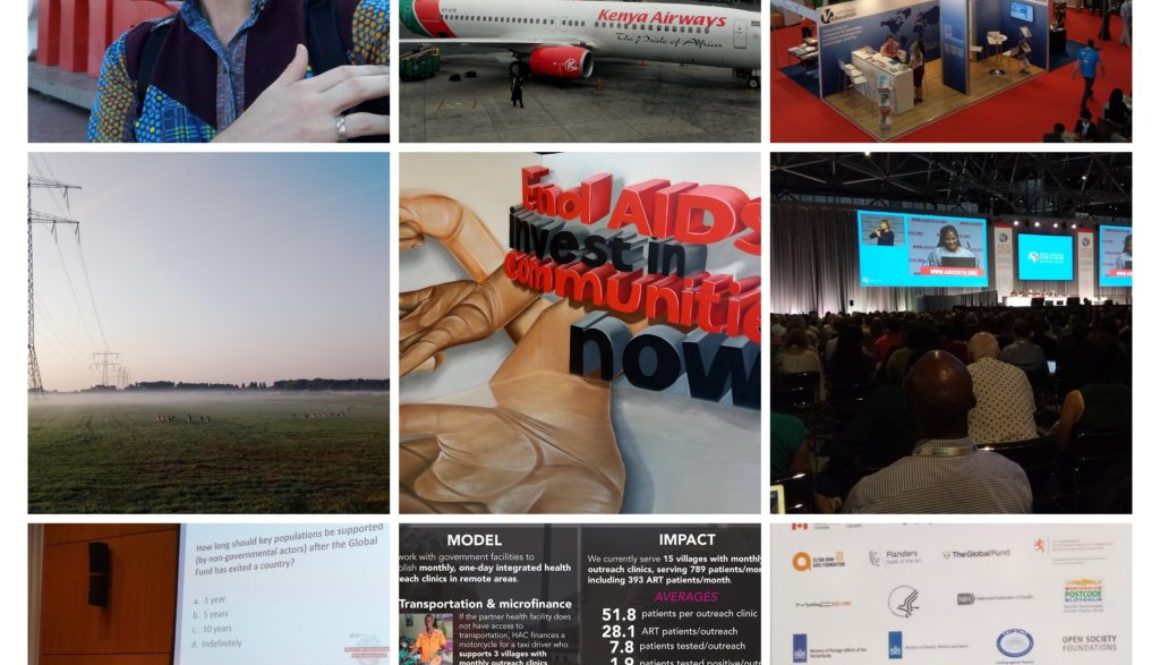
AIDS Conference 2018: A photo essay
I attended the AIDS 2018 Conference in Amsterdam on a scholarship from the International AIDS Society to present a poster on our work at Health Access Connect. Here are the highlights of my experience of the conference.
I passed Nairobi airport on my way to Amsterdam. The first thing that I noticed in Amsterdam is the ease of transportation. The metro and trains will take you anywhere! And there are bike lanes and pedestrian walkways all over the densely populated city. It’s a dramatic contract to Kampala in which traffic is often at a standstill and pedestrians are shoulder to bumper with cars and minibuses.
I met some of the other scholarship recipients and networked with other people who work in Uganda. The recipients whom I met included advocates for LGBTQ rights, a social worker who works with prisoners, quantitative public health researchers, journalists, clinicians, and pharmacists. My interactions with scholarship recipients was where I caught my first glimpse of the diversity and sex-positiveness of the conference.
The place was packed! The conference was overwhelming. Hundreds of sessions. Protest demonstrations. Quiet dance parties. Corporate presentations. It’s a lot to take in.
My goals going into the conference were primarily to 1) find organizations that are funding work similar to ours (aka look for money), 2) learn about cutting edge programs, and 3) connect with potential partner organizations.
The tracking-down-funding thing made the stakes pretty high! In this photo you can see a section of the exhibitors’ area. Lots of corporations (especially large pharmaceutical companies), foundations, and government aid agencies had booths (some with free espresso!) mostly for selling therapies and talking about their programs. I got a few good leads, but mostly people responded, “Ooooh, cool program. I’m not sure who’s funding that kind of thing.”
I spoke on a broadcast to the ViiV Healthcare staff. ViiV gave us the Connecting to Clinic Incubation Prize in 2017, and they continue to support our work with advice and contacts. It was nice to meet them in person and get their advice on where we should go next. The gist of what they said: “We want your model to spread all over the world! We don’t have funding right now, but we are willing to help in whatever way we can.” We feel fortunate to have this continued relationship, and it’s nice to get some pats on the back!
HAC’s work relates to other “differentiated service delivery” (DSD) models of healthcare. DSD takes the patient and his/her/their needs as the starting point for developing a model to reach them. Some key populations for HIV/AIDS are men who have sex with men, sex workers, injectable drug users, adolescent girls, and fishing communities (that’s where we target!). So under DSD, rather than having one strategy for giving anti-retroviral treatment, you would set up special programs for sex workers in Dar es Salaam, which would be different from injectable drug users in Kiev, etc.
Here’s our poster that I presented. I met a lot of people who were interested in what we are doing. People in the HIV/AIDS space are excited about a few things:
- We are reaching the most difficult-to-reach communities that other organizations can’t.
- We are using transportation networks that already exist in the country, rather than setting up something new.
- We are using microfinance and cost-sharing so that the program is low-cost and sustainable, even as funding for HIV/AIDS has declined.
I racked up quite a few business cards, and since the conference I’ve been meeting with researchers in Uganda around the world to learn from each other.
It’s hard to distill all that I learned (or all that I’ve forgotten!), but here are some highlights:
- The global push is 90-90-90. 90% of people living with HIV know their status, 90% of those are started on treatment, and 90% of those have suppressed viral loads. The costs of reaching remote and undeserved populations are high, and HAC is playing an important role in helping Uganda meet those targets.
- 2% of international HIV-related funding is dedicated toward key populations but over 40% of new infections outside of Sub-Saharan Africa involve these populations.
- 1/3 of sex workers in Sub-Saharan Africa are HIV positive.
- Only 1.4% of funding spent on combating drug abuse and addiction is spent on “harm reduction” programs, like clean syringes, pre-exposure prophylaxis for HIV, and antiretroviral outreaches. Most is used for law enforcement, including police action and imprisonment. Yet the public health community has mountains of evidence to show that harm reduction saves lives and is cheaper.
- One of the important topics at this conference of “self-testing” for HIV. There are cheaper, easier testing kits to use, but researchers and policy makers are discussing how to implement these kits because post-test counseling is a core part of testing. (Imagine people who find out they are HIV-positive; they need a trained counselor to help them understand what that means and think through next steps.) One approach that is getting traction is “supervised self-testing” so that there is an increase access to HIV testing and a health professional to help patients understand the results.
- Currently, the burden of HIV/AIDS is being shouldered by adolescents, especially adolescent girls. There was a lot of advocacy for programs that target schools and homes of adolescents.
- I also want to mention that there was a lot of representation from Africa and the Global South.
- Have you ever heard of the meme “Congratulations, you have an all male panel!“? It’s meant to draw attention to how conferences and sessions prioritize the voices of men. Well, none of the sessions that I attended had an all-male panel, and quite a few had an all-female or an all people-of-color panel. Kudos to the organizers.
There were some celebrities in attendance! I was able to see Bill Clinton, Elton John, and Prince Harry. Many people were energized by these marquee names, who emphasized, “What you all are doing is important, and together we can eliminate HIV!”
I did get to do a teeny tiny bit of sightseeing. And I made a few new friends at the conference. My favorite non-conference parts of the week were long walks through downtown Amsterdam checking out street performers, eating Indian food, smelling the … smells in the air. At the end of the day I got to chat with my Airbnb hosts about the conference, their lives, and whatever political news was swirling around.
Lastly, here are some of the photos from the morning runs that I had in northern Amsterdam. Notice the geese waddling in the mist and the lovely bike and pedestrian paths.
Peace out, Amsterdam! #AIDS2020 will be in Oakland-San Francisco. I hope we get the chance to attend!
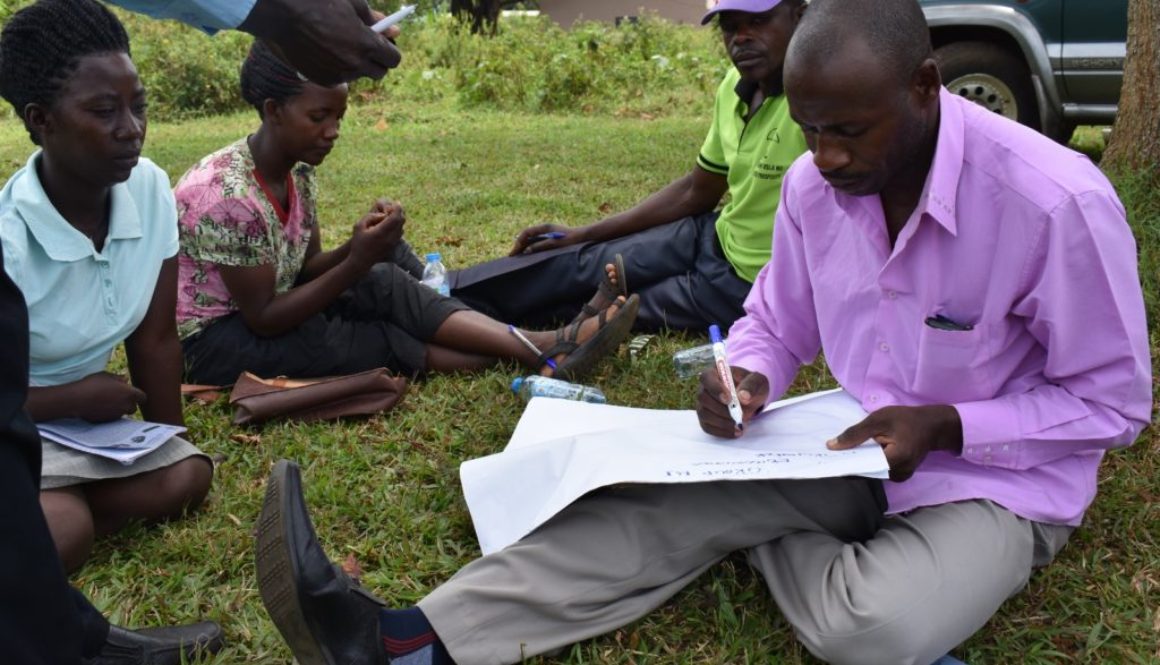
Stakeholders Workshop: A photo essay
In preparation for the meeting, Executive Director Kevin Gibbons and Monitoring & Evaluation Officer Bridget Nanyonjo met with district health leaders from HAC partner clinics that would be attending the meeting in order to have a more in depth discussion with them one on one. Bridget is seen above with female health workers at HAC partner Health Centre 3 Bwendero in the first photo. In the second photo, Kevin is meeting with Jimmy Kazibwe, Clinical Officer at Health Centre 3 Mugoye.
HAC outreach clinic sign outside of the Stakeholders Workshop which was hosted at the HAC partner organization KAFOPHAN office in Kalangala town on Buggala Island.
Miiro “Mpola Mpola” Deo, HAC Field Officer, Kalangala, helps to lead main discussions about, past and current successes and lessons to be learned for areas for improvement in the HAC model with district health leaders, HAC field staff, and other community members.
Livingstone Musoke, a counselor with HAC partner organization Kalangala Comprehensive Public Health Services Project, presents on his experience working with HAC outreach clinics and the positive responses and impacts in remote villages.
Meeting participants are divided into teams of community members, health workers, and partners to discuss their unique challenges from their perspectives and brainstorm solutions.
Motorcycle taxi driver Mike Nsubuga explains some of the problems and solutions from the community perspective. Many groups stressed the importance of keeping time and improving coordination between health workers and community members.
Kalangala District HIV Focal Person Dr. Edward Muwanga discusses how the difficulties of medicine stockouts and staff limitations at the health facilities can interrupt outreach clinic activities.
Scovia Namaganda, in-charge of Health Centre 3 Bwendero, discusses the challenges that she and her colleagues have faced in bringing care to remote villages and gives some ideas for how HAC and community members can help make their work easier, specifically with improved coordination and giving health workers their travel allowances on time.
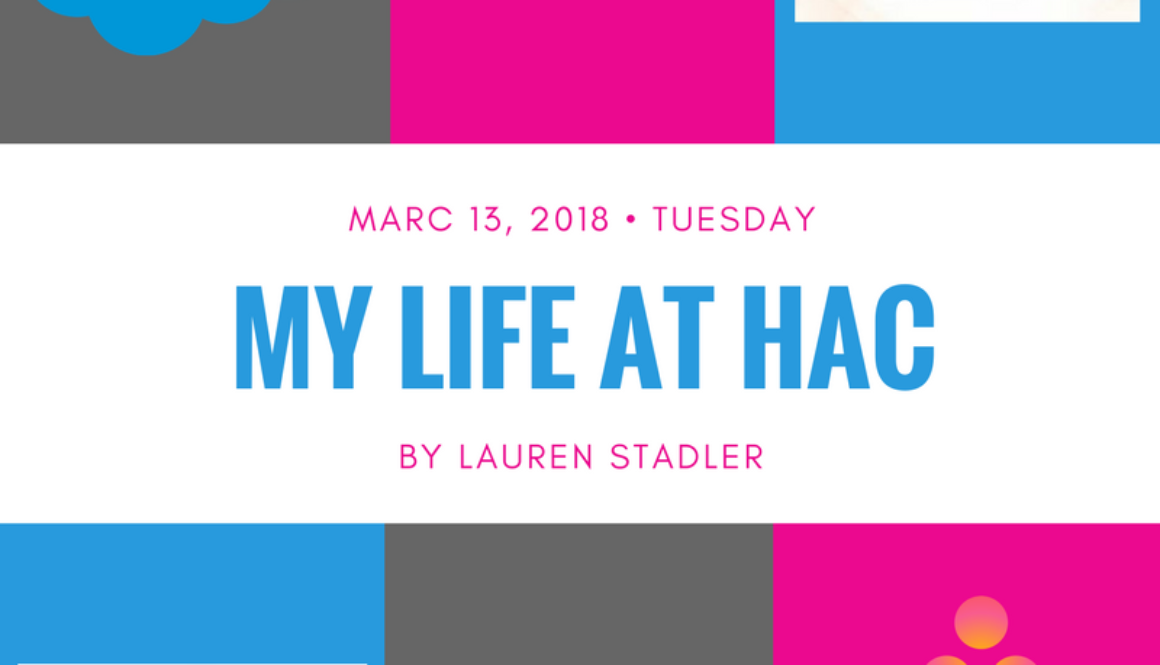
HAC and what do I want to do with my life?!
I’m currently interning at Health Access Connect for 3 months through a study and work abroad program called Insight Global Education. My coursework as a Global Public Health and History major at NYU has sparked an intense curiosity in me and has called me to a career in social impact. The study of public health is interdisciplinary and covers diverse sectors including health sciences, statistics, environmental health, business, policy, and much more. I’m on a journey of discovering not only which areas best suits my interests, but I am also devoted to discovering where I can have the most impact. At Health Access Connect, I’ve been given the opportunity to involve myself in a variety of tasks to help the organization and gain more clarity into what careers I might pursue. At a month and half in, I’ve taken an interest in development/fundraising and program management as I’ve witnessed the necessity to support more small community-based nonprofits like Health Access Connect that work to build local capacity.
So what do I actually do?! I spend most days at the HAC office in Kampala learning how to work in various databases and management softwares, including Salesforce, The Non-Profit Leadership Lab, Grant Station, and Asana. Managing a small and growing organization is not easy! Kevin Gibbons and I then figure out how we can use these tools to improve HAC’s ability to fundraiser, oversee staff, and serve people in the remote communities where we work. Intermixed with this are field visits to the communities were HAC works, various small administrative tasks, social media management, and attending networking meetings. I’ve even been able to work on my first grant application, and I’m loving it! I’m learning so much working at HAC, and I’m so lucky to have the opportunity to find my passion so I can have a successful and well thought out career. I’ve got another month and a half left in Kampala and I can’t wait to see what else is to come!
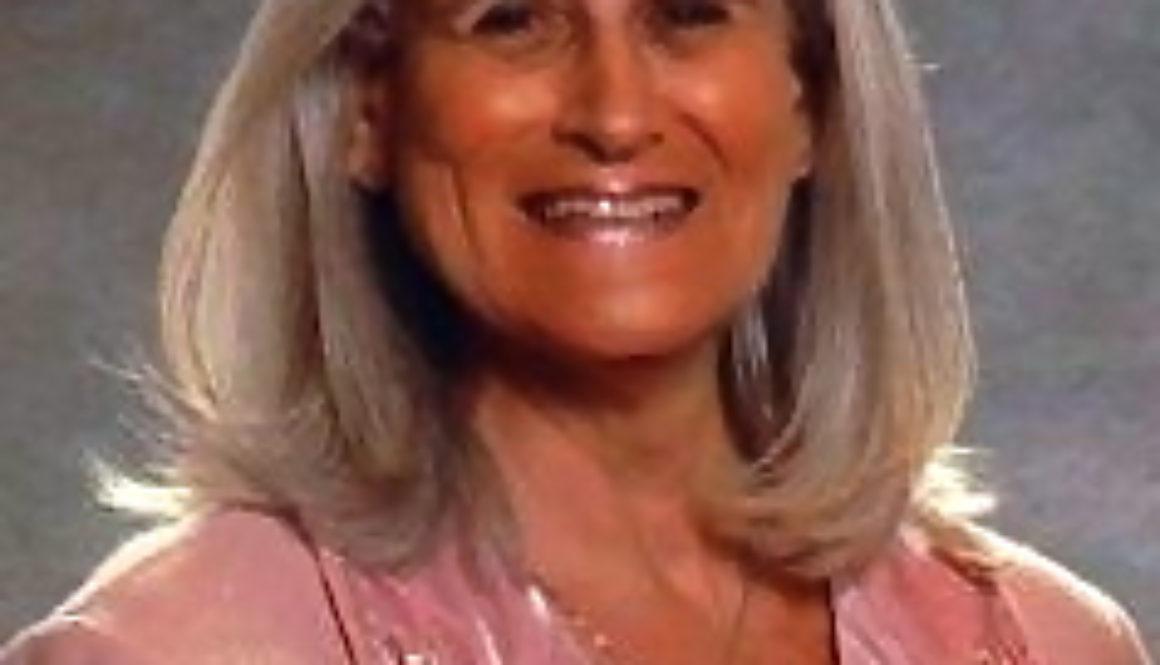
Our New Board Member: Jan Baskin
Today we are announcing the appointment of Jan Baskin to our Board of Directors.
Jan Baskin is a globally recognized expert in marketing communications and business growth, turn-around, and sustainability. She has established a proven reputation for successfully introducing new products and services, turning stagnant or lackluster parts of businesses into vital ones, and handling crisis situations. During her tenures at St. Joseph’s Hospital Foundation in Tampa, Florida, and 11 years at AT&T, including service as Vice President of Public Relations for AT&T and AT&T Canada, Jan increased assets by millions. At Florida Hospital Carrollwood, she was part of a team that created a new approach to healthcare delivery in Tampa. She focused on the federally-mandated Community Health Plan, creating unique, life-changing, innovative, and landmark programs throughout the community. Her creation of the nationally-recognized and innovative Food Is Medicine program, a model for collective impact, has resulted in substantive health improvements.
“The mission of Health Access Connect and its commitment to improving and saving lives resonates deeply with me,” Jan Baskin said. “It is an honor to join with this organization to help it grow and continue to save and improve the lives of those without access to healthcare.”
She currently chairs and serves on several health-related boards and committees in the Tampa Bay area, throughout Florida, and at the national and global levels. She earned her degree at The Ohio State University with a focus on Sino/Soviet Relations and minors in Russian and Chinese languages. She is a popular speaker, focusing on motivation, strategic business growth, collective impact, and the social side of business.
“We are thrilled that Jan Baskin has joined the Health Access Connect Advisory Board. By expanding the board with members of such outstanding contributions, like Jan, HAC is assured of achieving its strategic goals of substantially increasing our outreach to the farming communities we serve,” said Kevin Gibbons, Executive Director.
You can read more in our press release: HAC Board Member Jan Baskin Press Relsease 2017-10-23 (doc).

2016 Annual Report
We’ve just released our 2016 Annual Report subtitled “Revving Up Our Partners, Gearing Up For Growth.” You can expect more motorcycle puns!
Our impacts in 2016:
In 2016, HAC helped to
- Set up more than 25 one-day clinics
- Served 6 villages with monthly one-day comprehensive health clinics
- Served patients more than 1,100 times at the clinics
- Served children more than 320 times at the clinics
- Distributed anti-retroviral treatment more than 520 times
- Test for HIV over 200 times
- Started more than 58 people living with HIV/AIDS on anti-retroviral treatment
- Distributed malaria treatment more than 78 times
- Distributed deworming medicine more than 125 times
- Provided a small business to 2 motorcycle drivers’ households
Not bad for our first full year of running the clinics! Read more by downloading our HAC Annual Report 2016 (pdf).
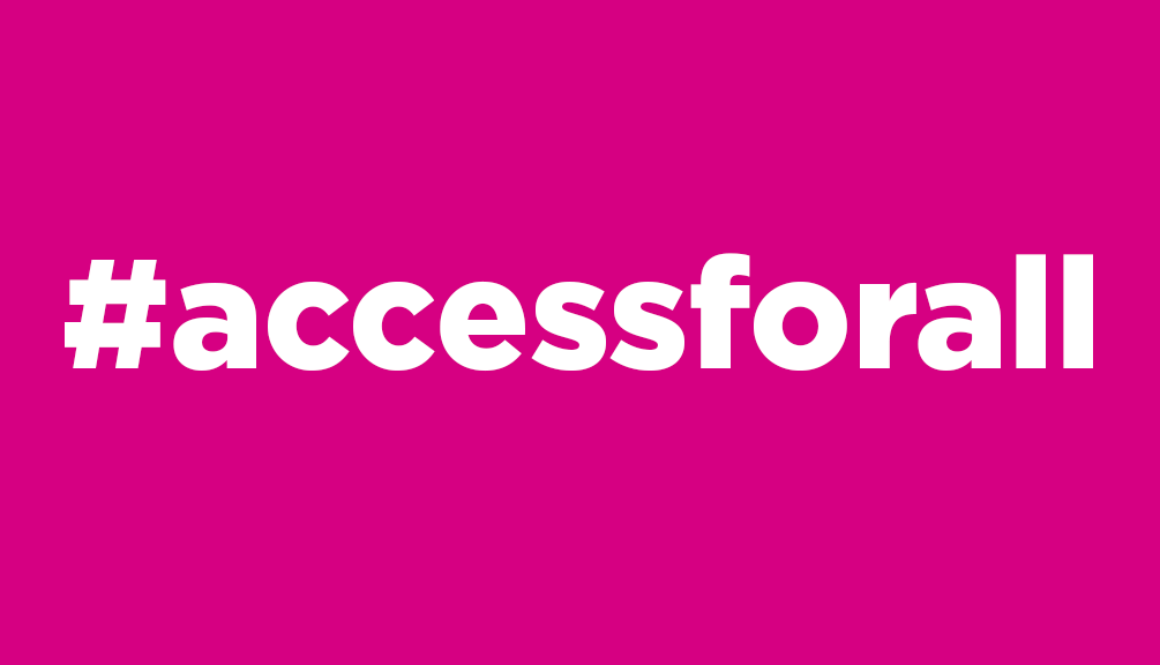
Why #accessforall?
 Aspire for something big!
Aspire for something big!
 Highlight the voices of the people we work with.
Highlight the voices of the people we work with.
We wanted to highlight the voices and the stories of the people we work with: residents of remote communities. We also wanted to hear from health workers and HAC staff who work on our project. We chose a storytelling style inspired by Humans of New York in which we interview the people we work with and put direct quotes down.
 Build connections.
Build connections.
 Appreciate our access.
Appreciate our access.
That’s it in a nutshell! We hope to expand upon these stories and continue to pursue #accessforall.
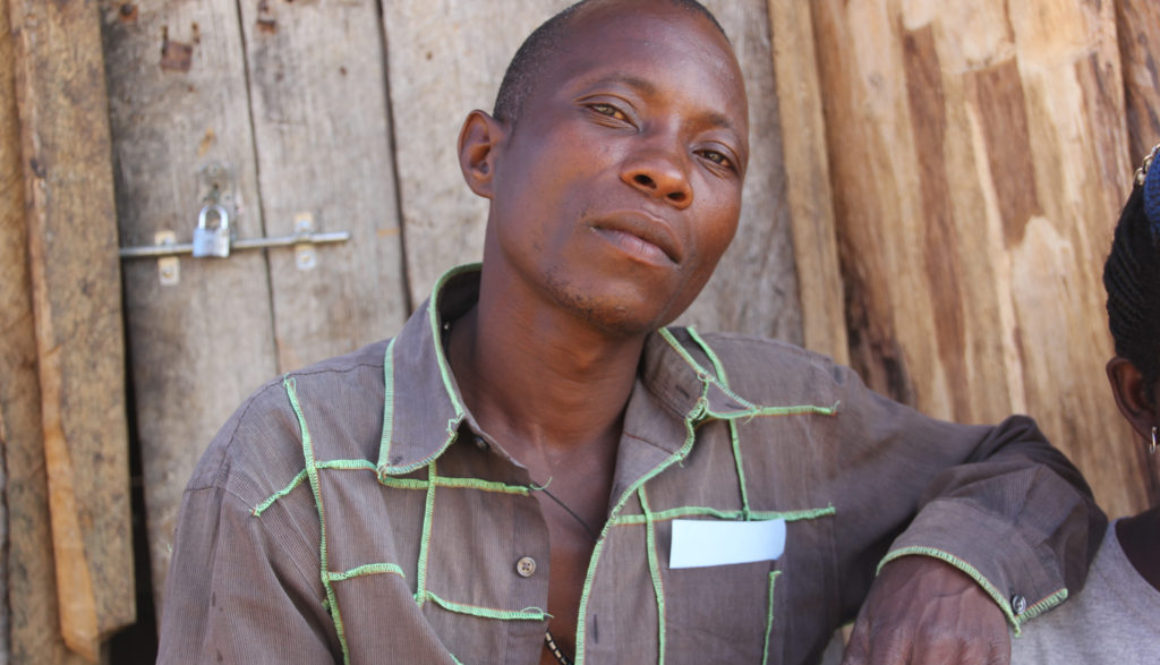











 Aspire for something big!
Aspire for something big! Highlight the voices of the people we work with.
Highlight the voices of the people we work with. Build connections.
Build connections. Appreciate our access.
Appreciate our access.